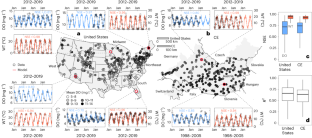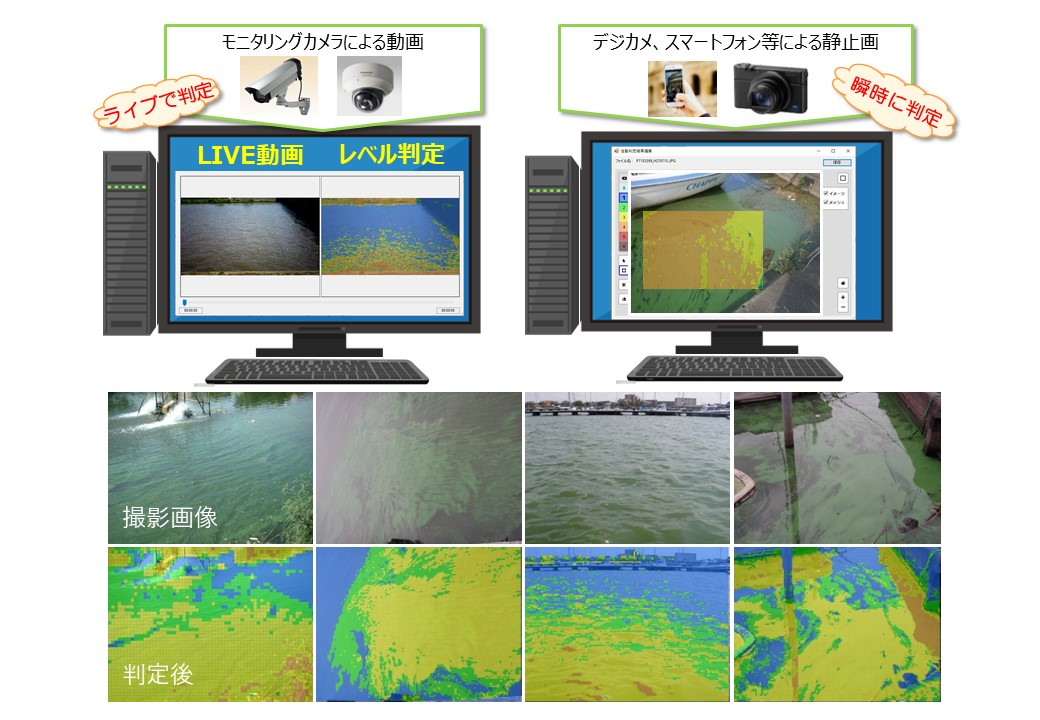2023-09-14 ペンシルベニア州立大学(PennState)
◆また、次の70年以内に、特にアメリカ南部の川の一部で、酸素レベルが非常に低くなり、特定の魚の種が「急性死」を引き起こし、水生生態系全体に脅威をもたらす可能性があると予測されています。これは水質と水生生態系の健康に重要な影響を及ぼし、水中生物や人間の生活にも深刻な影響を及ぼす可能性があると警告しています。
<関連情報>
- https://www.psu.edu/news/research/story/rivers-rapidly-warming-losing-oxygen-aquatic-life-may-be-risk-study-finds/
- https://www.nature.com/articles/s41558-023-01793-3
温暖化する河川で広範な脱酸素現象が見られる Widespread deoxygenation in warming rivers
Wei Zhi,Christoph Klingler,Jiangtao Liu & Li Li
Nature Climate Change Published:14 September 2023
DOI:https://doi.org/10.1038/s41558-023-01793-3

Abstract
Deoxygenation is commonly observed in oceans and lakes but less expected in shallower, flowing rivers. Here we reconstructed daily water temperature and dissolved oxygen in 580 rivers across the United States and 216 rivers in Central Europe by training a deep learning model using temporal weather and water quality data and static watershed attributes (for example, hydro-climate, topography, land use, soil). Results revealed persistent warming in 87% and deoxygenation in 70% of the rivers. Urban rivers demonstrated the most rapid warming, whereas agricultural rivers experienced the slowest warming but fastest deoxygenation. Mean deoxygenation rates (−0.038 ± 0.026 mg l−1 decade−1) were higher than those in oceans but lower than those in temperate lakes. These rates, however, may be underestimated, as training data are from grab samples collected during the day when photosynthesis peaks. Projected future rates are between 1.6 and 2.5 times higher than historical rates, indicating significant ramifications for water quality and aquatic ecosystems.



